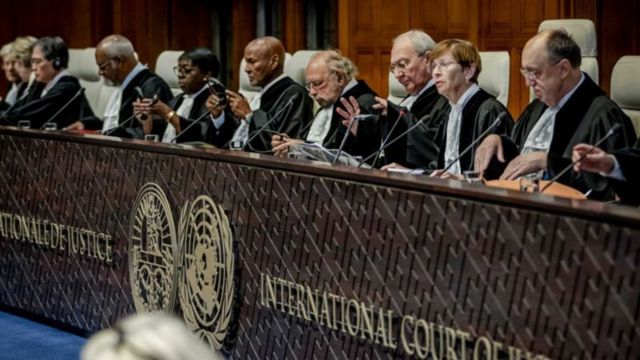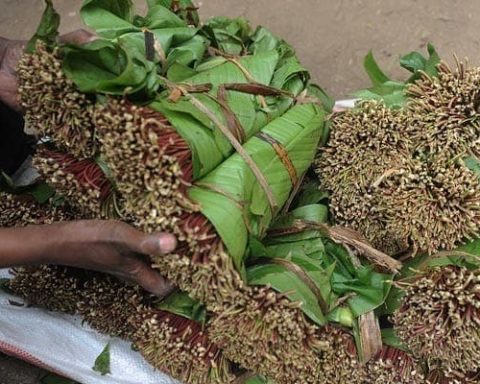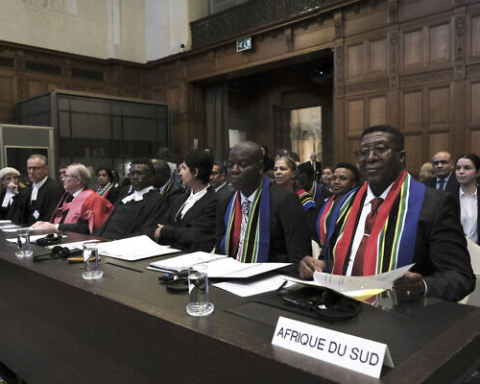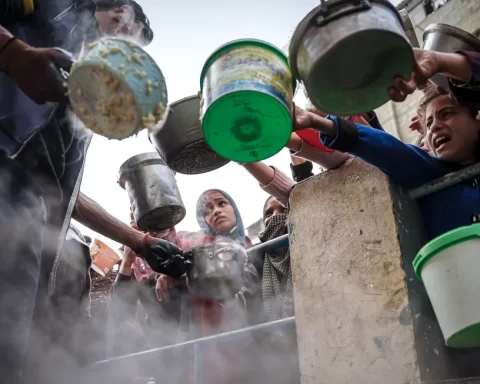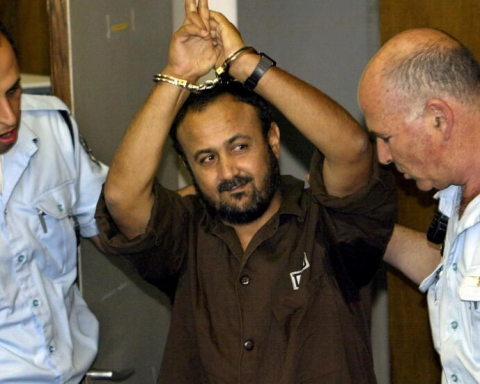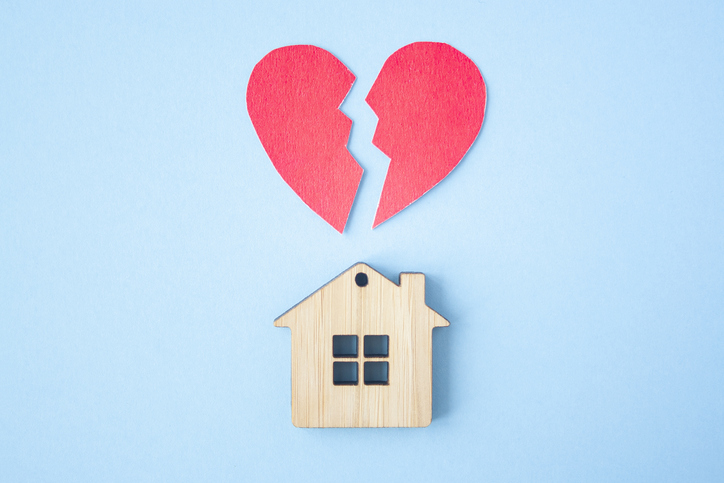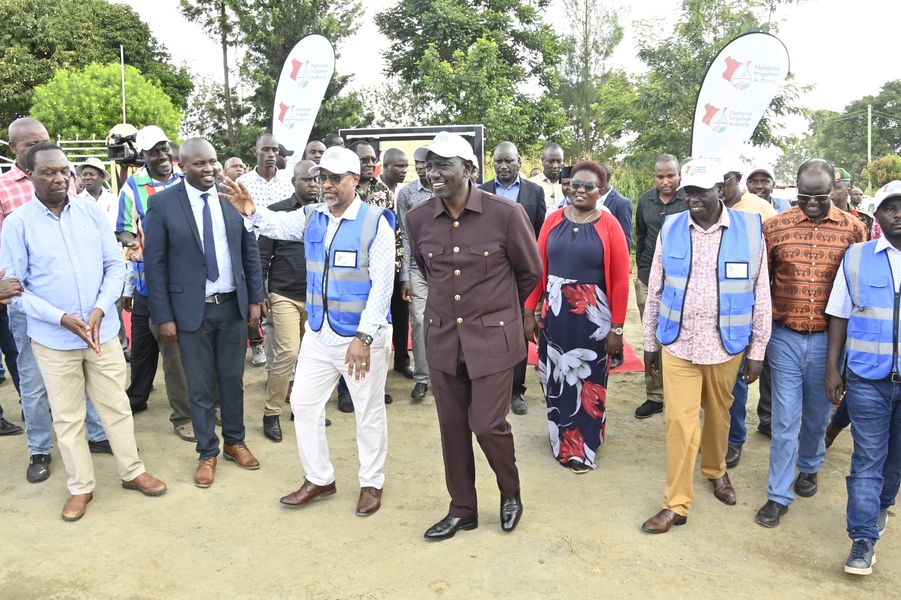While the 17-judge panel ordered Israel to halt any genocidal acts in Gaza, it stopped short of ordering an immediate ceasefire.
THE 17-JUDGE PANEL at the International Court of Justice in The Hague issued a series of rulings on Friday about Israel’s conduct during its war against Gaza that constitute a significant legal defeat for Israel and its chief defenders, the United States and Germany.
It found that there is a basis to proceed with the case against Israel for genocide and that South Africa had solid foundation to bring its case before the world’s highest court. The ICJ’s chief judge, Joan Donoghue, said provisional measures against Israel were necessary because “the catastrophic humanitarian situation in the Gaza Strip is at serious risk of deteriorating further before the court renders its final judgement.” The full proceedings against Israel will take many years to complete.
At the same time, the court did not go as far in its rulings as South Africa wished and did not explicitly order Israel to immediately halt its military attacks against Gaza or to lift its state of siege. Instead, it ordered Israel to “take all measures within its power to prevent the commission of all acts within the scope of Article II of the Genocide convention.”
Both the Biden administration and the Israeli government seized on this aspect of the court’s ruling to argue that this amounted to a green light for Israel to continue its military assault on Gaza. “The court’s ruling is consistent with our view that Israel has the right to take action to ensure the terrorist attacks of October 7 cannot be repeated, in accordance with international law,” a State Department spokesperson said. “The court did not make a finding about genocide or call for a ceasefire in its ruling.”
This mischaracterization of the court’s ruling is a clear effort by the U.S. government to spin what was actually a very specific set of orders the court issued to Israel. Moreover, the court did not issue a finding on genocide, not because it concluded Israel’s actions do not constitute genocide, but because that determination would be made following a multi-year legal process, which the judges have now said should proceed.
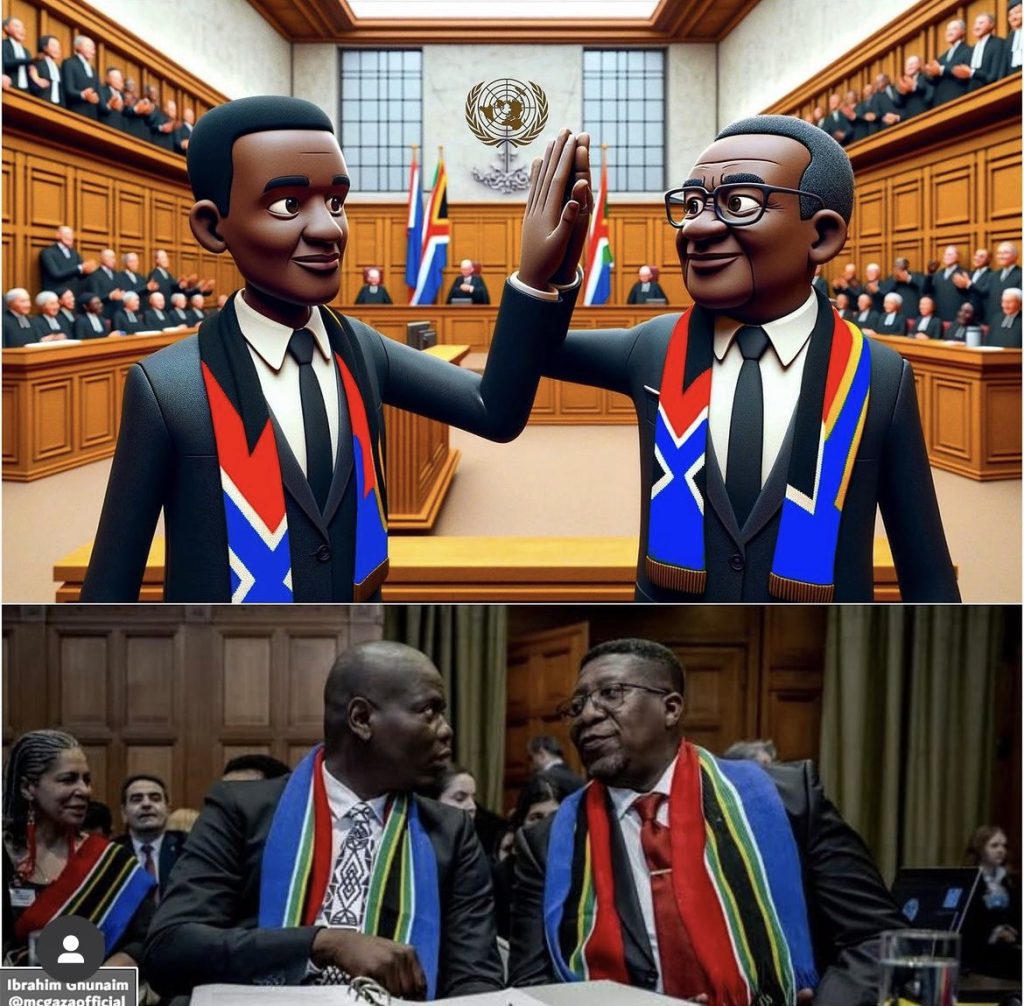
In a 15-2 ruling, the ICJ judges ordered that Israel must prevent the following actions against the protected “group,” which the court defined as the Palestinians of Gaza: “(a) killing members of the group; ( b ) causing serious bodily or mental harm to members of the group; (c) deliberately inflicting on the group conditions of life calculated to bring about its physical destruction in whole or in part; and ( d ) imposing measures intended to prevent births within the group.” While the specific word “ceasefire” was not mentioned in the order, the ruling could not be clearer about the court’s intent. It literally ordered Israel to stop killing Palestinians in Gaza “with immediate effect.”
In issuing its provisional measures, the court upheld “the right of Palestinians in the Gaza Strip to be protected from acts of genocide and related prohibited acts” under the Genocide Convention. It found that “the catastrophic humanitarian situation in the Gaza Strip is at serious risk of deteriorating further before the Court renders its final judgment.”
“Israel must take immediate and effective measures to enable the provision of urgently needed basic services and humanitarian assistance to address the adverse conditions of life faced by Palestinians in the Gaza Strip,” the court saidOpens in a new tab. It also ordered Israel to halt and punish incitement to genocide, to preserve any evidence of violations of the Genocide Convention by its forces or personnel, and to submit a report on its compliance with the court’s orders within one month.


Donoghue read aloud several statements made by Israeli officials, which South Africa contended indicated “genocidal intent.” Among these was the statement by Israeli Defense Minister Yoav Gallant announcing there would be “no electricity, no food, no fuel” allowed into Gaza and saying, “We are fighting human animals.” She also read a statement from Israeli President Isaac Herzog saying of the people of Gaza, “It is an entire nation out there that is responsible.”
Donoghue, the president of the ICJ, is an American who worked as a top legal adviser at the State Department under President Barack Obama. She voted in favor of every order the court issued against Israel.
While judges do not officially operate as agents of their home governments, it was nonetheless striking that Donoghue ruled against Israel at a time when the U.S. has officially denounced the accusations leveled by South Africa and continues to fuel Israel’s military onslaught.
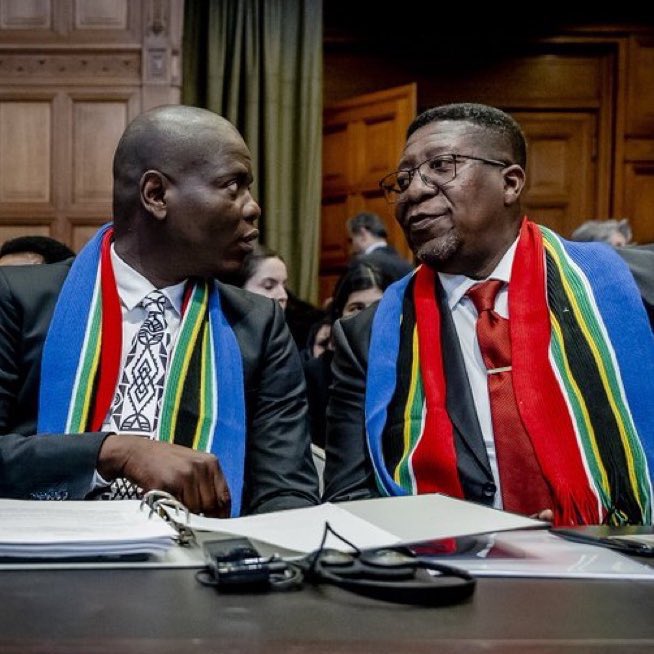
At The Hague, Israel Mounted a Defense Based in an Alternate Reality
The ruling at the court is undoubtedly important in a symbolic sense: It found that the Palestinians of Gaza are a protected group under the provisions of the Genocide Convention and that South Africa had proven that there is a reasonable basis to litigate whether Israel’s military onslaught constitutes a genocide.
But it also represents a technical coup for Israel, which has already argued it is not committing genocidal acts. The bottom line is that the court has ruled that Israel should stand trial on charges of genocide in Gaza and ordered it to stop killing Palestinians in Gaza. But the U.S. and Israel clearly believe the court’s ruling contains a significant loophole that Israel can exploit to continue its war against Gaza.
Israeli Prime Minister Benjamin Netanyahu has vowed that no one will stop the war against Gaza. The court’s rulings, which did not explicitly order an immediate cessation of the military assault, is already being emphasized in Tel Aviv.
While generally denouncing the ICJ ruling, Netanyahu asserted that the court “rightly rejected the outrageous demand” for an immediate halt to the military attacks on Gaza. “The very claim that Israel is carrying out genocide against Palestinians is not only false, it’s outrageous, and the willingness of the court to deliberate it at all is a mark of disgrace that will not be erased for generations,” Netanyahu, reacting to the ruling, said.
He also vowed Israel will keep fighting “until total victory, until we defeat Hamas, return all the captives and ensure that Gaza will not again be a threat to Israel.”
Gallant, whose statements were cited as evidence of genocidal intent, adding that Israel “does not need to be lectured on morality in order to distinguish between terrorists and the civilian population in Gaza.”
He said Israel will continue its war. “Those who seek justice, will not find it on the leather chairs of the court chambers in The Hague — they will find it in the Hamas tunnels in Gaza, where 136 hostages are held, and where those who murdered our children are hiding.”
“Hague Shmague,” tweeted Netanyahu’s minister of national security, Itamar Ben-Gvir.
Naledi Pandor, South Africa’s minister of international relations, said outside the court that she was grateful for the court’s ruling, but wished it had ordered an explicit halt to Israel’s attacks. She argued that the court’s orders would not be enforceable if Israel does not actually cease its military attacks and state of siege. “Without a ceasefire, the order doesn’t actually work,” she said.
South African President Cyril Ramaphosa said in speech that, with the ICJ ruling, “Israel stands before the international community, its crimes against the Palestinian people laid bare.”
The U.S. government has long shielded Israel from international legal consequences for its actions against the Palestinians in both Gaza and the West Bank. The only enforcement mechanism for rulings from the ICJ reside at the U.N. Security Council, where the U.S. regularly wields its veto power.
The State Department has refused to answer whether the Biden administration will abide by the ICJ’s provisional orders, but its statement after the ruling indicates it is already aggressively spinning an alternative interpretation of a clear set of orders imposed on Israel. This proceeding may herald the intensification of the global debate over whether international law and courts have relevance, or whether the U.S. will remain the ultimate judge over which nations must face the consequences for their violations of the laws and convention.
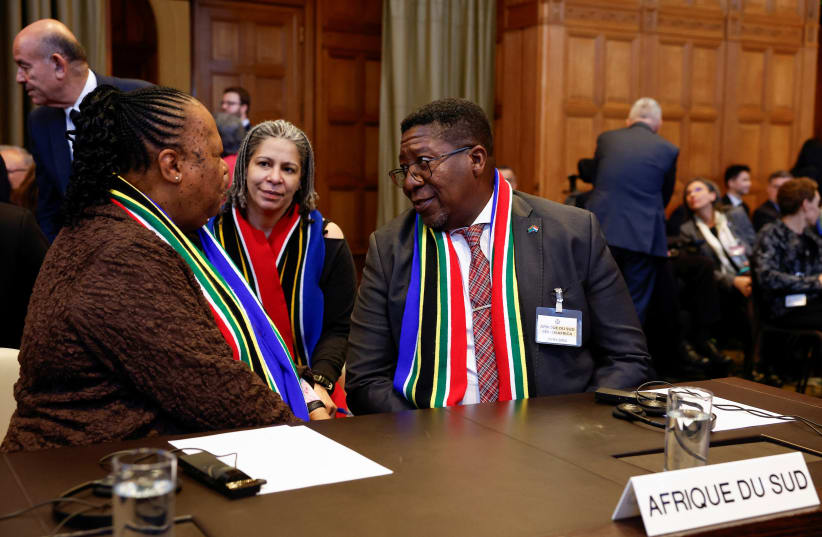
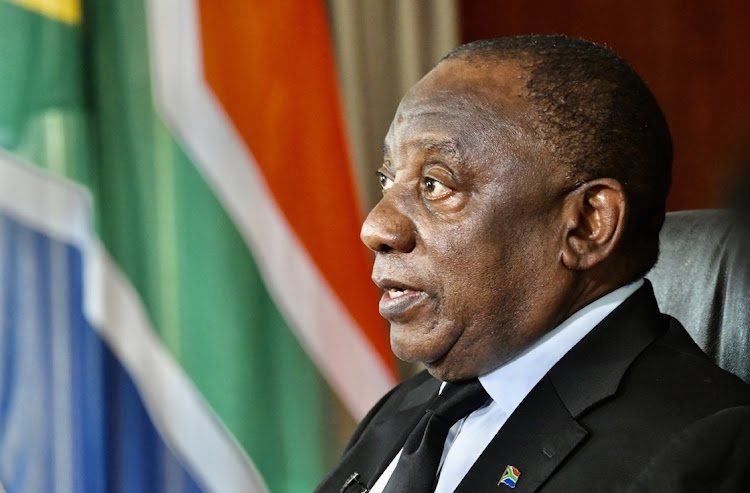
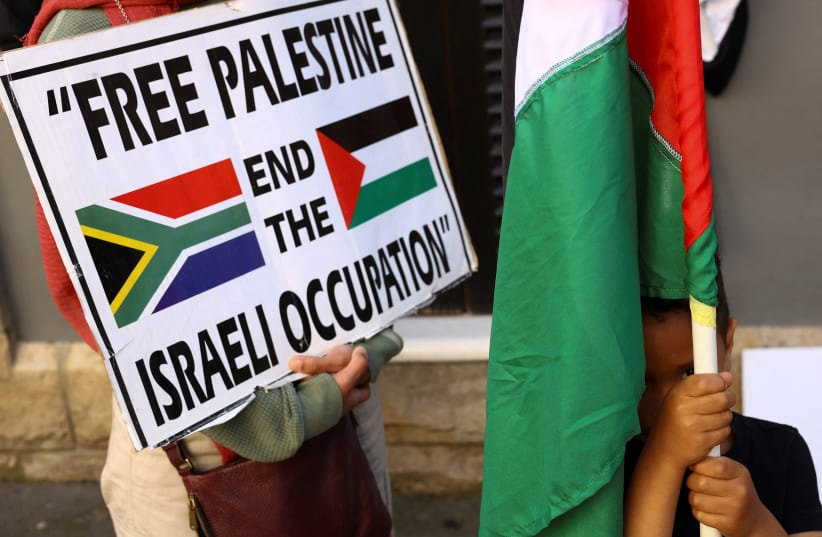
“What South Africa was showing, without spelling it out, is ‘we’ve done something that you – the United States, the United Kingdom, France, Germany, every other country that has power over Israel – should have been doing,” he said.
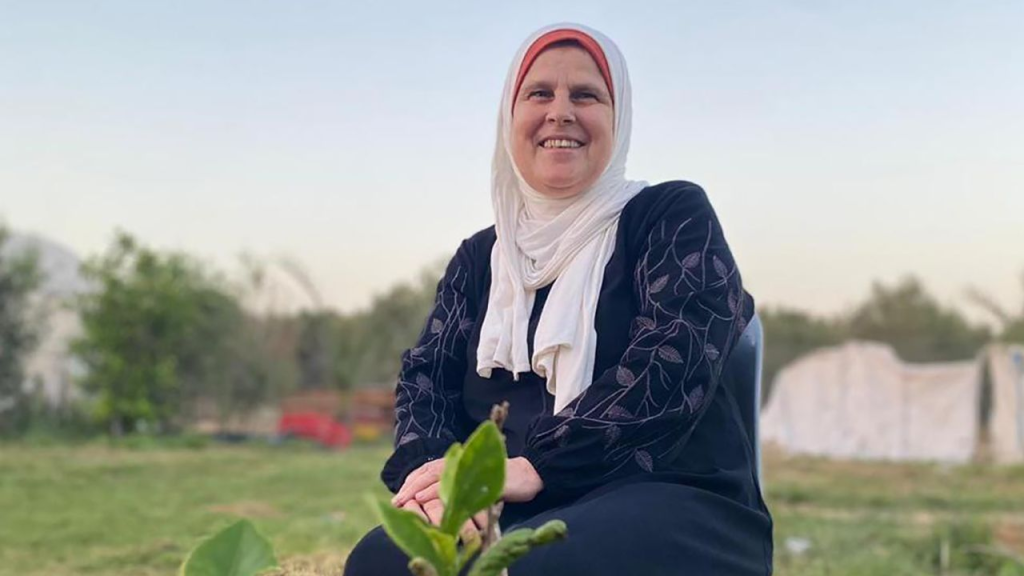
ICJ orders Israel to stop genocidal acts in Gaza but not end war
Judges delivered an interim ruling in South Africa’s genocide case against Israel.
The UN’s top court rules that Israel must take all measures to prevent genocidal acts in Gaza, but stops short of ordering an immediate halt to operations.
Judges at the International Court of Justice delivered an interim ruling in South Africa’s genocide case against Israel.
Riyad al-Maliki, the Palestinian foreign minister, says the judges ruled “in favour of humanity and international law”.
Meanwhile, PM Benjamin Netanyahu says Israel will “continue to defend ourselves and our citizens while adhering to international law”.
A verdict on South Africa’s allegation of genocide is not expected for years; Israel strongly denies the accusation, calling it “baseless”.
Meanwhile, US media report that the head of the CIA is due to meet Israeli, Qatari and Egyptian officials in the coming days to discuss a new potential ceasefire in Gaza.
Israel’s retaliatory attacks in Gaza have killed 25,900 people, mostly women and children, the Hamas-run health ministry says.
The current war began after Hamas attacked southern Israel on 7 October, killing about 1,300 people, mostly civilians, and taking 240 hostages.
Egypt stresses need to respect ICJ decision
We’re getting some reaction to the ICJ ruling from Egypt, which has played a key role between Hamas and Israel in mediating hostage releases since the 7 October attacks.
A foreign ministry statement says Egypt “was looking forward to the International Court of Justice demanding an immediate ceasefire in Gaza, as the court ruled in similar cases,” Reuters news agency reports.
The statement welcomes the ICJ interim ruling, but stresses the need to respect and implement it.
‘It was our place to get involved’ – South African president
South African President Cyril Ramaphosa says the ICJ’s ruling must be respected by all who recognise the the court, including Israel.
Speaking after the court’s ruling on the application brought by his country, Ramaphosa says South Africa expects Israel, “as a self-proclaimed democracy, and as a state that respects the rule of law,” to abide by the ruling.
“Some have told us we should mind our own business and not get involved in the affairs of other countries and yet it is very much our place as the people who know too well the pain of dispossession, discrimination, state sponsored violence,” he says.
He says following the ruling, there should be more effort towards a ceasefire, and that an end to the conflict through a two-state solution that would grant Palestinians self-determination.
EU expects ‘full implementation’ of ICJ orders
The European Union has published it’s initial reaction to the ICJ ruling that Israel must take all measures to prevent genocidal acts in Gaza.
“Orders of the International Court of Justice are binding,” it says, adding those party to it must comply with them.
“The EU expects their full, immediate and effective implementation,” it said in a brief statement.
South Africa is satisfied by the ICJ’s instructions on Israel on the prevention of genocide, the country’s Foreign Minister Naledi Pandor said.
Asked by the Jerusalem Post if South Africa now intended to sever diplomatic ties with Israel, the minister said ‘’I don’t think it’s a matter between South Africa and Israel here. All your questions are about Israel, but the real issue is Palestine, Palestinians who are being killed every day. The people of Palestine who are denied food, water, and energy, that is the critical issue we should all focus upon.’’Top ArticlesRead More
South Africa’s relationship with Palestinian leaders
South Africa is hopeful that Israel will comply with Friday’s order by the ICJ that Israel must take steps to prevent acts of genocide as it wages war against Hamas militants in the Gaza Strip, South Africa’s justice minister Ronald Lamola told Reuters in an interview.
Lamola also told Reuters on the sidelines of a gathering of the governing African National Congress (ANC) party that South Africa’s liberation hero Nelson Mandela would be smiling in his grave at Friday’s ICJ judgment.
The ANC has long defended the Palestinian cause, a relationship forged when its struggle against oppressive white-minority rule was cheered on by Yasser Arafat’s Palestine Liberation Organization.
The ANC has likened Israel’s actions to its struggle against apartheid, a comparison rejected by Israel.
Jerusalem Post Staff contributed to this report.
Of course the rabid pro-occupation groups all over the world are inventing their own stories. It won’t work this time.
“The ICJ’s interim ruling, coming a day before International Holocaust Remembrance Day, shames the memory of those who fought against genocide and the six million Jews on whose ashes the Genocide Convention was built. The ruling strips the rights of their descendants, the Jewish people in their indigenous and ancestral homeland, of their right to prevent another genocide. It sets a precedent that will deny the right of defense from all democracies fighting against terrorists who embed themselves among civilian populations. The ruling will be learned and studied by all terrorist organizations around the world and serve as a blueprint for them to be able to achieve their genocidal aims, without censure or attack. Finally, we recall that the ICJ made an unequivocal demand to immediately release all of the hostages, something which we share.”
Gaza is going to have hundreds of thousands of this kind of picture at The Hague.
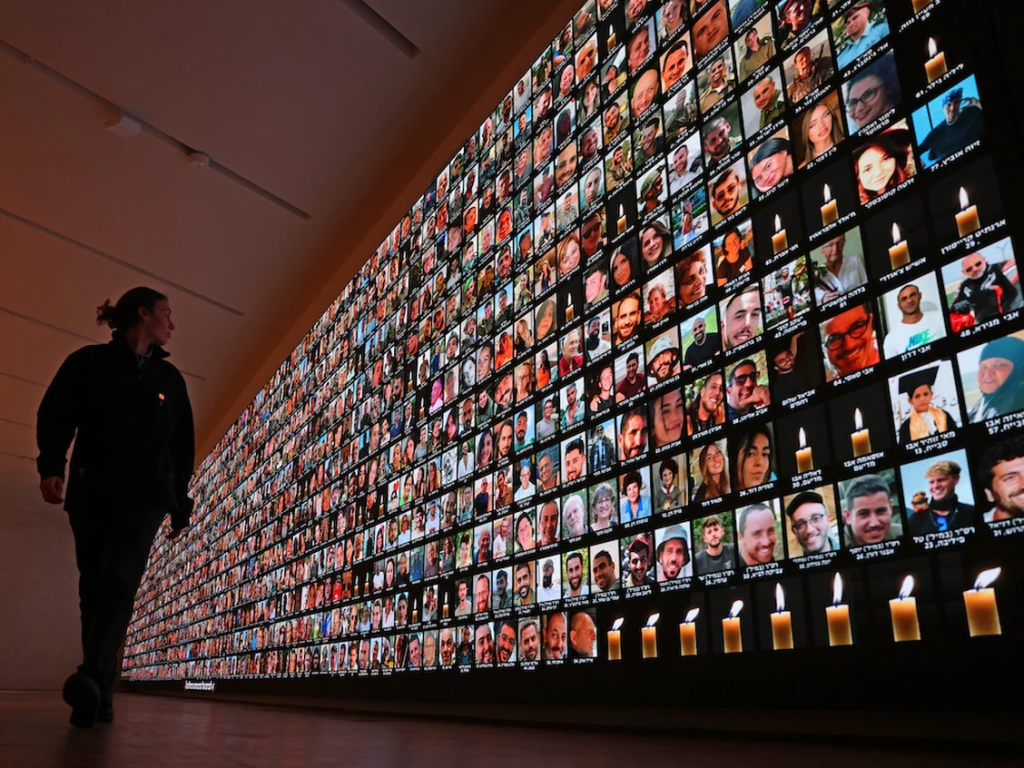
Why both South Africa and Israel are welcoming the UN court’s ruling in a landmark genocide case
Analysis by Nadeen Ebrahim and Abbas Al Lawati, CNN
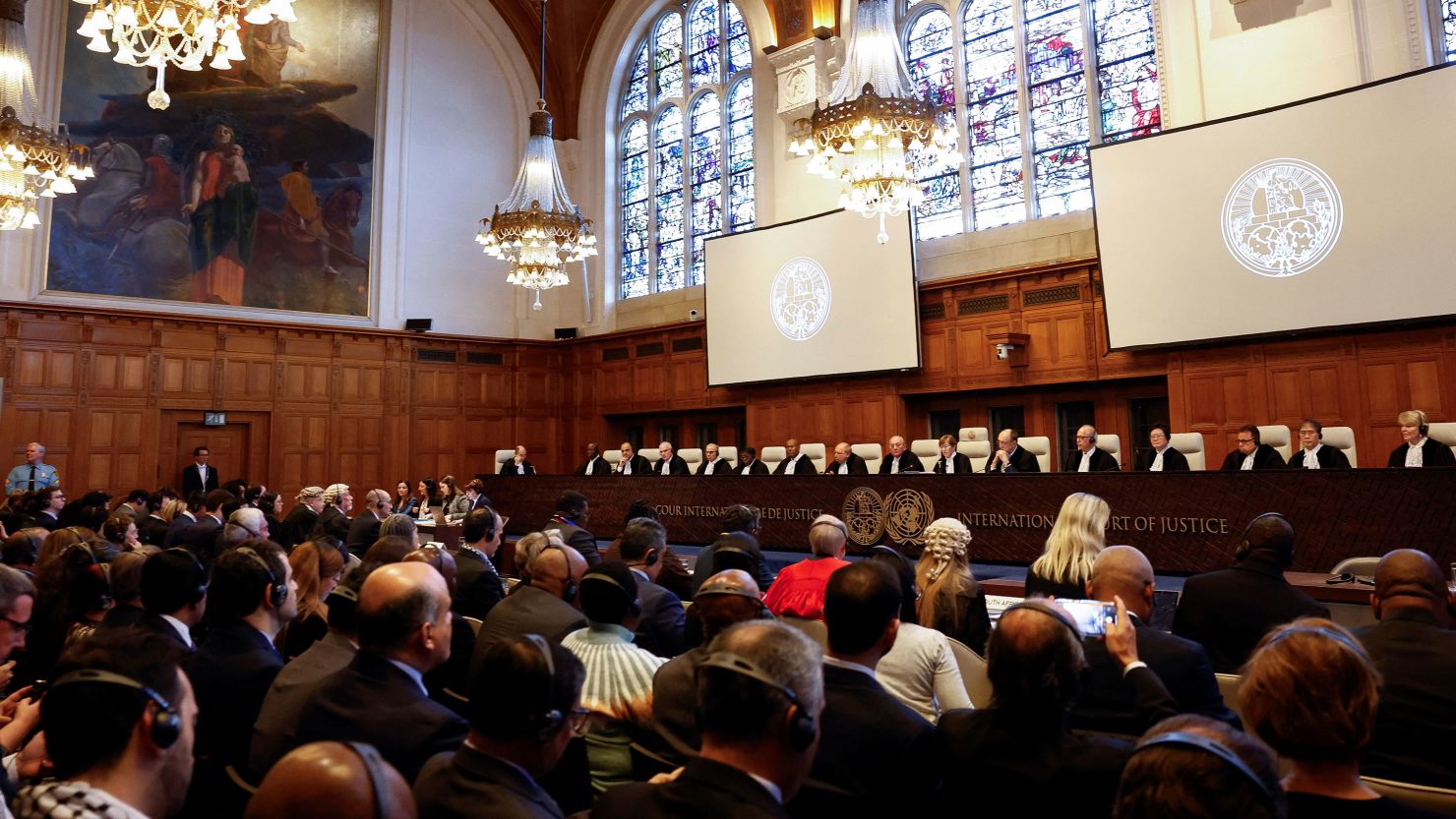
The International Court of Justice in The Hague, the Netherlands, ordered Israel to “take all measures” to prevent genocide in Gaza after South Africa accused Israel of violating international laws on genocide in its war in the territory.
It rejected Israel’s request for the case to be thrown out, but it also stopped short of ordering Israel to halt the war as South Africa has asked.
“I would have wanted a ceasefire,” said South African foreign minister Naledi Pandor after the ruling in The Hague. She said that she was still satisfied with the outcome.
Israel went to war with Hamas in Gaza after the Palestinian militant group launched a brutal attack on the country on October 7, killing 1,200 people and taking more than 250 people hostage.
The case at the ICJ marks the first time Israel has been brought before the court on accusations of violating the 1948 UN Genocide Convention, which was drafted in part due to the mass killings of Jewish people in the Holocaust during the Second World War.
Still, many Israelis hailed the ruling on Friday as a win for the Jewish state. Eylon Levi, an Israeli government spokesperson, said the court “dismissed (South Africa’s) ridiculous demand to tell Israel to stop defending its people and fighting for the hostages.” Avi Mayer, the former editor in chief of the Jerusalem Post called it “a devastating blow to those accusing the Jewish state of ‘genocide’.”
“The most dramatic thing is that no ceasefire was ordered,” Shelly Aviv Yeini, head of the international law department at Israel’s Haifa University, told CNN, adding that a potential ceasefire order was Israel’s biggest fear, especially as it would have come as over a hundred hostages remain in Gaza.
The discourse in Israel has so far focused on only ending the war once the hostages are freed, she said, adding that Israel would have “struggled to live” with a ceasefire order that doesn’t guarantee the return of the captives.
Israel’s war in Gaza has exposed a deepening global divide
Analysis by Stephanie Busari, Nadeen Ebrahim and Abbas Al Lawati, CNN
When members of the legal team representing South Africa in its case against Israel at the International Court of Justice (ICJ) arrived home this week, they were mobbed like rockstars by a crowd gathered at an airport in Johannesburg, waving South African and Palestinian flags.
Many expressed collective pride at how the case was presented. One of the activists greeting the lawyers lauded them for “having the courage to take Israel to the ICJ when no one else had that courage.”
In a case brought before the court in The Hague in December, the team argued that Israel had violated its obligations under the 1948 Genocide Convention in its war with Hamas in Gaza – a charge Israel has strongly denied.
Hailed as heroes in the pursuit of justice, the multi-racial team of lawyers symbolized South Africa’s “Rainbow Nation” ethos that celebrates its diversity, and has allowed the country to flex its diplomatic muscle as a moral arbiter on global issues, three decades post-apartheid.
“The significance of the fact that the country bringing the case is South Africa – an icon of the ravages of colonialism, settlement and apartheid – cannot be lost on anyone,” wrote Nesrine Malik, a Sudanese journalist and author, in The Guardian newspaper. “It symbolizes a vast racial injustice, too raw and recent to be dismissed as ancient history.”
Israel saw the racial symbolism quite differently, with Prime Minister Benjamin Netanyahu accusing South Africa of “hypocrisy” that “screams to the high heavens.” Hamas had carried out “the worst crime against the Jewish people since the Holocaust,” he said in a televised speech, but “now someone comes to defend it in the name of the Holocaust.”
Israel launched its war against Hamas after the group’s brutal attack on the country left roughly 1,200 people dead and 250 taken hostage. The subsequent Israeli assault on Gaza has so far killed more than 24,000 people, according to the Hamas-run health ministry there.
South Africa’s genocide case has put the spotlight on a deeper fault line in global geopolitics. Beyond the courtroom drama, experts say divisions over the war in Gaza symbolize a widening gap between Israel and its traditional Western allies, notably the United States and Europe, and a group of nations known as the Global South — countries located primarily in the southern hemisphere, often characterized by lower income levels and developing economies.
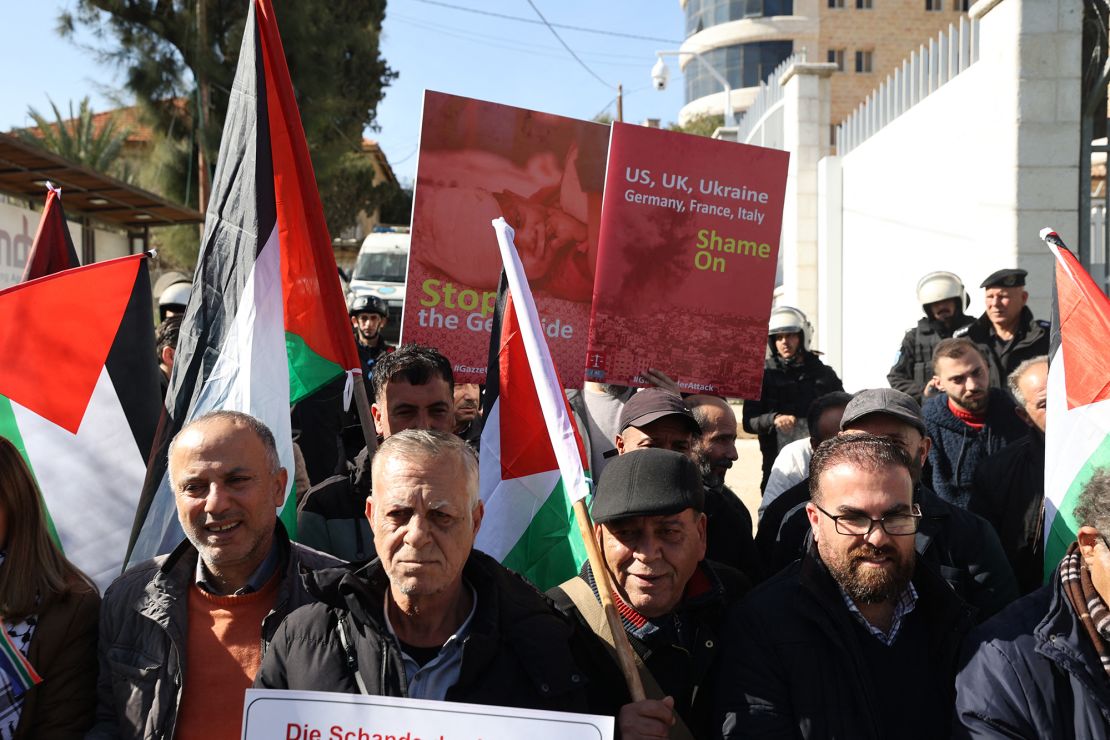
Reactions from the Global North to the ICJ case have been mixed. While some nations have maintained a cautious diplomatic stance, others, particularly Israel’s staunchest allies in the West, have criticized South Africa’s move.
The US has stood by Israel through the war by continuing to ship arms to it, opposing a ceasefire, and vetoing many UN Security Council resolutions that aimed to bring a halt to the fighting. The Biden administration has rubbished the claim that Israel is committing genocide as “meritless,” while the UK has refused to back South Africa.
“The Israel-Gaza war and its subsequent events like this case are highlighting growing fissures between the once dominant West and its key allies like Israel and emerging powers gathered around BRICS states like South Africa,” Remi Adekoya, a political lecturer at the University of York in England, told CNN.
The decision by South Africa to initiate legal proceedings against Israel at the ICJ marked a departure from the usual diplomatic channels taken in such disputes, as the angry voices against Israel’s campaign in Gaza grow louder.
As a nation whose history is rooted in overcoming apartheid, South Africa’s move carries symbolic weight that has resonated with other nations in the developing world, many of whom have faced the burden of oppression and colonialism from Western powers.
Nelson Mandela, the face of the anti-apartheid movement, was a staunch supporter of the Palestine Liberation Organization and its leader Yasser Arafat, saying in 1990: “We align ourselves with the PLO because, akin to our struggle, they advocate for the right of self-determination.”
Hugh Lovatt, a senior policy fellow with the Middle East and North Africa Programme at the European Council on Foreign Relations, said that while South Africa’s case is a continuation of its long-standing pro-Palestinian sympathies, the countries that have rallied behind it show deeper frustrations by the Global South.
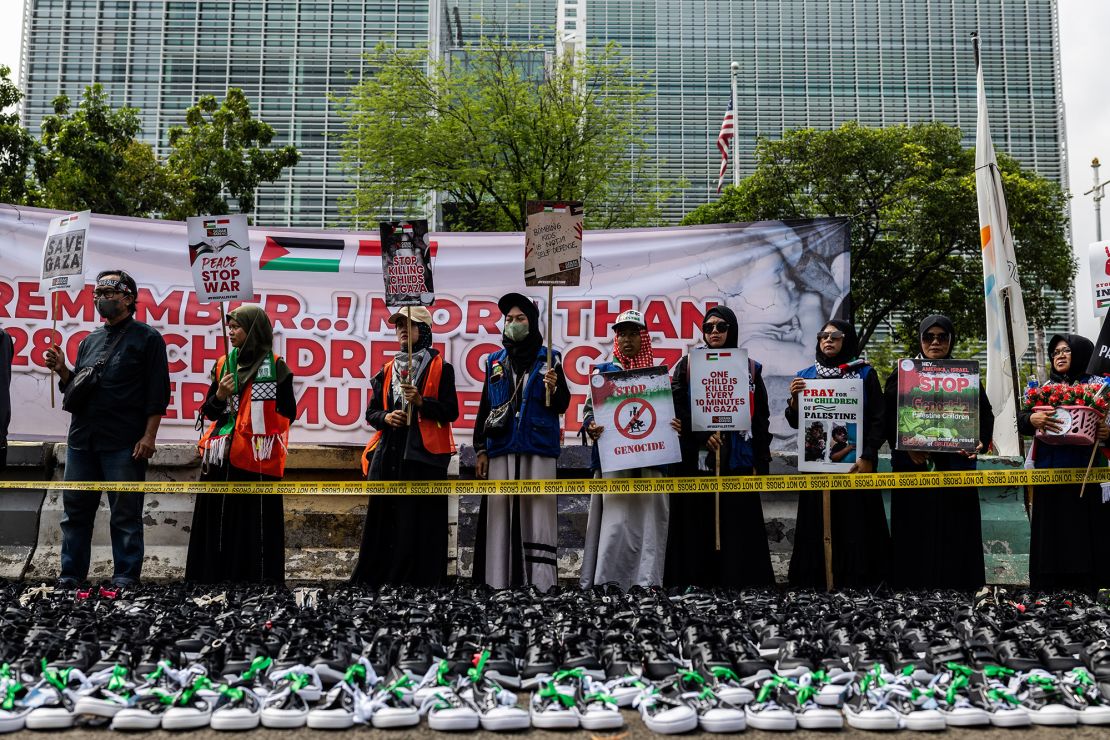
There is “a clear geopolitical context in which many countries from the Global South have been increasingly critical over what they see as a lack of Western pressure on Israel to prevent such a large-scale loss of life in Gaza and its double standards when it comes to international law,” Lovatt told CNN.
Much of the non-Western world opposes the war in Gaza; China has joined the 22-member Arab League in calling for a ceasefire, while several Latin American nations have expelled Israeli diplomats in protest, and several Asian and African countries have joined Muslim and Arab nations in backing South Africa’s case against Israel at the ICJ.
For many in the developing world, the ICJ case has become a focal point for questioning the moral authority of the West and what is seen as the hypocrisy of the world’s most powerful nations and their unwillingness to hold Israel to account.
One of the reasons for this is that Israel has long been a “Western-facing country by virtue of its history and predominant heritage,” said Lovatt.
Israel sided with the West against Soviet-backed Arab regimes during the Cold War, and Western countries largely view it “as a fellow member of the liberal democratic club,” he added. “Some of this explains the continued strong Western support for Israel – which has now largely become reflexive.”
“But the strong support of Western governments is increasingly at odds with the attitudes of Western publics which continue to shift away from Israel,” Lovatt said.
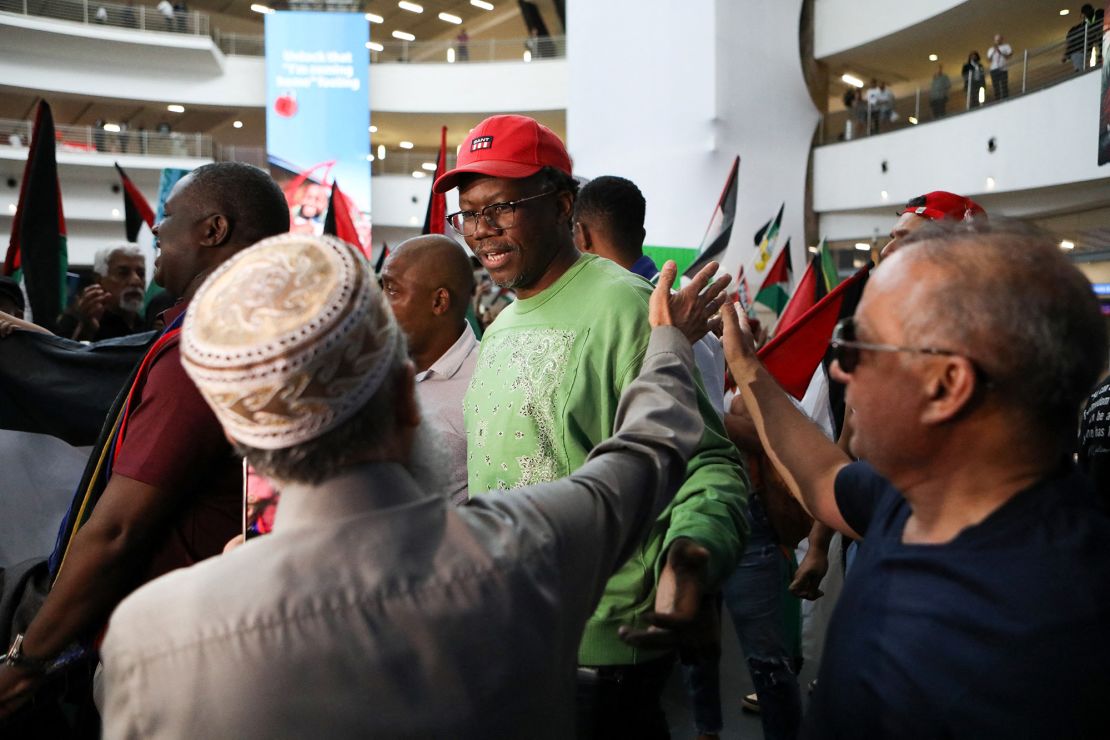
Clash of civilizations?
Israel has framed the war in Gaza as a clash of civilizations where it is acting as the guardian of Western values that it says are facing an existential threat.
“This war is a war that is not only between Israel and Hamas,” Israeli President Isaac Herzog told MSNBC in December. “It’s a war that is intended – really, truly – to save Western civilization, to save the values of Western civilization.”
So far, no Western countries have supported South Africa’s case against Israel.
Among Western states, Germany has been one of the most vocal supporters of Israel’s campaign in Gaza. The German government has said it “expressly rejects” allegations that Israel is committing genocide in Gaza and that it plans to intervene as a third party on its behalf at the ICJ.
An opinion poll by German broadcaster ZDF this week however found that 61% of Germans do not consider Israel’s military operation in the Gaza Strip as justified in light of the civilian casualties. Only 25% voiced support for Israel’s offensive.
But it is in Germany’s former colonial territory, Namibia, that it has attracted the fiercest criticism.
The Namibian President Hage Geingob in a statement on Saturday chided Berlin’s decision to reject the ICJ case, accusing it of committing “the first genocide of the 20th century in 1904-1908, in which tens of thousands of innocent Namibians died in the most inhumane and brutal conditions.” The statement added that the German government had not yet fully atoned for the killings.
Bangladesh, where up to three million people were killed during the country’s war of independence from Pakistan in the 1970s, has gone a step further to file a declaration of intervention in the ICJ case to back South Africa’s claims, according to the Dhaka Tribune.
A declaration of intervention allows a state that is not party to the proceedings to present its observations to the court.
“With Germany siding with Israel, and Bangladesh and Namibia backing South Africa at the ICJ, the geopolitical divide between the Global South and the West appears to be deepening,” Lovatt said.
Traditionally, the West has wielded significant influence in international affairs, but South Africa’s move signals a growing assertiveness among Global South nations that threatens the status quo, says Adekoya.
“One clear pattern emerging is that the old Western-dominated order is increasingly being challenged, a situation likely to only further intensify as the West loses its once unassailably dominant economic position,” Adekoya said.
Conclusion.
The whole world for the next 2-3 years are going to witness first hand what Palestinians in Gaza have been dealing with. South African will bring tens of thousands of survivors, victims, family members, witnesses and videos and pictures of all those maimed children and civilians to the court at The Hague.
For the first time in history the whole world will know the Israel Palestinians have known for 76 years. When the evidence is out there everybody in the world will ask: who the heck does that kind of thing. Israel will say Hamas does the same thing. That is exactly why Hamas is a terrorist organization and not a state. Israel behaving like Hamas and actually 100 worse is going to be a real and serious problem for Israel as a state. Israel said Hamas is the new ISIS how about if the ICJ rules that Israel and the IDF is the new ISIS? That is coming next.
South Africa has done what no other country could dare do and we have the same as Kenyans that President William Ruto actively supports the genocide in Gaza. What else is new about Ruto?
And this is the Israeli defense which is a lose-lose situation. Oh we are Jewish so we can never commit genocide because the Genocide Convention was passed to protect us against Hitler: Just nonsense because the Genocide Convention did not allow another Hitler even if that was Jewish leader or government.
Gallant: Who is the Hague to pass judgment?
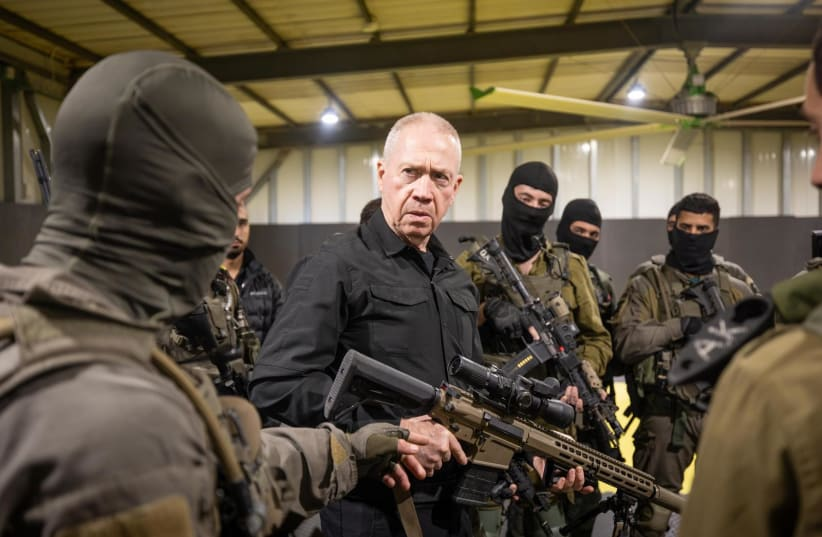
Gallant then went after the International Court of Justice in the Hague, accusing them of having no moral standing.
“At this very moment, as we stand here, the Hague Tribunal is trying to pass judgment on something that is the opposite of justice.
“They created the International Court of Justice and gave it the authority to discuss the crime of genocide, because of what happened to the Jews, especially to the Jews of Europe during World War II.”
“Sanctomoniusly, they come and sue the State of Israel, which defends itself, for trying to destroy the State – they kill children, rape women, kidnap old people, and for that they take the State of Israel to court.”
The Western media is beginning to get in there. Good.

